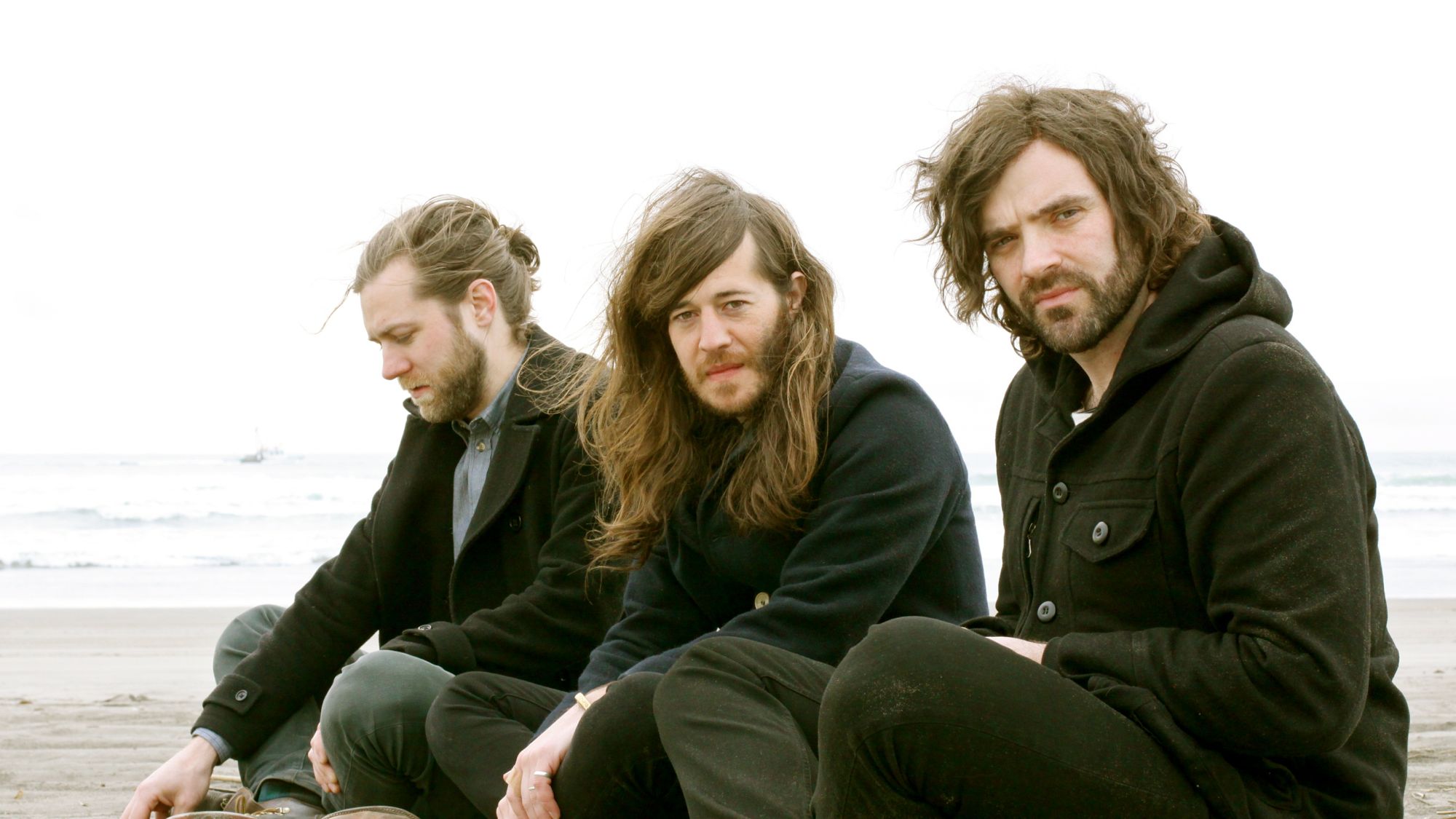Jesse Tabish will tell you everything you might want to know about him. He’s jogging a lot these days; all the better to keep his mind active and focused. He’s spending eight hours between shows in the van; all the better to catch up on his reading. There’s also the matter of the weather—he’s hoping to see a bit of sun on his band’s current swing of US tour dates; no such luck on this unseasonably rainy day in Los Angeles. But, truthfully? The Other Lives frontman is tired of small talk.
“There’s enough of those interviews of, ‘What’s your favorite color?’” he remarks after the conversation unexpectedly swerves into musing about the existence of the divine. “Thanks for the questions.”
It’s the way Other Lives (which also features Jonathon Mooney and Josh Onstott) operate: Cut to the quick, offer up the big ideas—musically and lyrically—right out of the gate. On their Radiohead-approved sophomore album Tamer Animals, the Portland-based band tackles the lofty concept of man’s relationship with animals, staging their musings against visceral, orchestral folk backdrops. This time, for Rituals, Tabish found himself looking inward, exploring nothing less than mankind’s tendency towards “autonomy, relationships, and domestication.”
“Without the unknown, without the potential of failure, it wouldn’t make it exciting. If you knew exactly what you were doing, it would take the fun out of it. It would take the fun out of life if you knew you were going to live forever.”
Despite the complexity of the album’s theme, Tabish claims that it’s something that just happened. Apologies to any soothsayers out there, but if he was offered the chance to see what his future holds, he would turn it down. The same goes for the direction of his songwriting.
“Without the unknown, without the potential of failure, it wouldn’t make it exciting,” he admits. “If you knew exactly what you were doing, it would take the fun out of it. It would take the fun out of life if you knew you were going to live forever.”
Tighter, brighter, and perhaps even more dramatic than its predecessor, Rituals ditches the dust-folk favor of Tamer Animals for ambitious orchestral pop. It’s a suitably epic backdrop on which Tabish can hang his lyrical ideas. Thoughts of routine, creature comforts, and even the concept of home are woven between hearty layers of horn, string, and piano. On percussive album centerpiece “2 Pyramids,” Tabish’s questions hit even higher, as he considers the idea of formal belief systems.
“I think it’s interesting that there is an innate necessity that humans need to have something higher than themselves to believe in,” he says. “Even from the beginning of civilization, there’s been this need to believe in something larger. It’s not an accusational tone. It’s interesting. It says something about us… I think that, in itself, is a process in finding life meaningful. I do believe that life is very meaningful. For me, it’s work that gives me that meaning. It opens up my heart more and makes me hopefully more compassionate.”
But it isn’t all deep thoughts and dramatic refrains. Other Lives’ third album also features “No Trouble,” the first love song Tabish has written since his days as a pre-teen lothario, penning tunes for his then-girlfriends. Tabish’s wife, who he met and married over the album’s gestation, was the inspiration for the moody piano and horn-driven ballad. Even on the phone, it’s impossible not to hear the smile in his voice as he describes his marital bliss.

“For the first time in my life, I love somebody more than myself,” he confesses. “You live your life for that person. It does something for you. It makes you more compassionate and responsible. It’s a beautiful thing. It’s also made me more dedicated to my craft. It seeds that side as well, becoming more dedicated to what I do. It’s a beautiful thing… In a really cliché, romantic way, [the song] was my gift to her on our wedding day. What a sap! What a fucking sap!”
Tabish jokes about clichés, but admits there’s a certain power to archetypes—even the lovesick kind. After all, they’re the kind of things that help us connect and understand greater truths.
For the record, though, Tabish doesn’t consider himself the archetypal musician, even if he does occasionally get to swim in the deep end of the ideological pool. Not one for the sex, drug, and rock-and-roll sect, these days, writing music, staying home, and cooking with his wife are high on his list of important activities. Of course, all that unfettered honesty and detailed looks into his day-to-day life only leaves one last important question—what is his favorite color?
“Black!” Tabish laughs. “Of course! I’ve still got a little rock and roll in me.” FL









